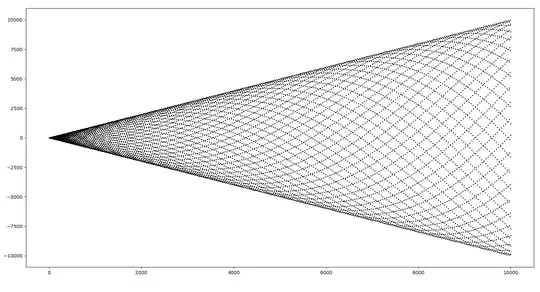By a basic result in Diophantine approximation, we have infinitely many pairs of positive integers $(p,q)$ with $$\left|\frac{\pi}{2} - \frac{p}{q}\right|<\frac{1}{q^2}$$
It is clear that both $p,q$ can be taken to be arbitrarily large. We can also take each denominator $q$ to be odd (consider that in the continued fraction approximation, no two consecutive denominators can be even, hence we have infinitely many convergents with odd denominators). We also note that any pair $(p,q)$ obeying the inequality above must satisfy $0 \leq \frac{p}{q}\leq 3$, since $\frac{p}{q}$ is distance less than $1$ away from $\frac{\pi}{2} \approx 1.6$
Fix an odd denominator $q$ which works as above. We have an integer $p=p(q)$ such that $|\frac{\pi}{2} q - p|=|p - \frac{\pi}{2} q|<\frac{1}{q}$. It follows that $|\cos(p)|=|\cos(p) - \cos(\frac{\pi}{2}q)| \leq |p-\frac{\pi}{2}q| \leq \frac{1}{q}$ so that $|p \cos(p)| \leq \frac{p}{q} \leq 3$.
Hence we deduce that $$\liminf_{n \to \infty} |n \cos n| \leq 3$$
On the other hand we have $$\limsup_{n \to \infty} |n \cos n| = + \infty$$ by considering a subsequence $b_k$ with $\cos b_k \to 1$. Here, we use that $\{\cos n\}_{n \in \mathbb{N}}$ is dense in $[-1,1]$, which is elementary.
